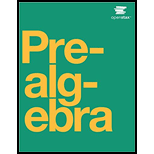
Mathematics For Machine Technology
8th Edition
ISBN: 9781337798310
Author: Peterson, John.
Publisher: Cengage Learning,
expand_more
expand_more
format_list_bulleted
Textbook Question
Chapter 14, Problem 2A
Multiply
Expert Solution & Answer
Want to see the full answer?
Check out a sample textbook solution
Students have asked these similar questions
Affect of sports on students linked with physical problems
26.1. Locate and determine the order of zeros of the following functions:
(a). e2z – e*, (b). z2sinhz, (c). z*cos2z, (d). z3 cosz2.
Q/ show that: The function feal = Se²²²+d+ is analytic
Chapter 14 Solutions
Mathematics For Machine Technology
Ch. 14 - Subtract 7516278 .Ch. 14 - Multiply 7238 . Express the result as a mixed...Ch. 14 - Multiply 1.7022.35 .Ch. 14 - Use Figure 14-5 to answer Exercises 4 through 6....Ch. 14 - Use Figure 14-5 to answer Exercises 4 through 6....Ch. 14 - Use Figure 14-5 to answer Exercises 4 through 6....Ch. 14 - Raise the following numbers to the indicated...Ch. 14 - Raise the following numbers to the indicated...Ch. 14 - Raise the following numbers to the indicated...Ch. 14 - Raise the following numbers to the indicated...
Ch. 14 - Raise the following numbers to the indicated...Ch. 14 - Raise the following numbers to the indicated...Ch. 14 - Raise the following numbers to the indicated...Ch. 14 - Raise the following numbers to the indicated...Ch. 14 - Raise the following numbers to the indicated...Ch. 14 - In the following table, the lengths of the sides...Ch. 14 - In the following table, the lengths of the sides...Ch. 14 - In the following table, the lengths of the sides...Ch. 14 - In the following table, the lengths of the sides...Ch. 14 - In the following table, the lengths of the sides...Ch. 14 - In the following table, the lengths of the sides...Ch. 14 - In the following table, the lengths of the sides...Ch. 14 - In the following table, the lengths of the sides...Ch. 14 - In the following table, the lengths of the sides...Ch. 14 - In the following table, the lengths of the sides...Ch. 14 - In the following table, the lengths of the sides...Ch. 14 - In the following table, the lengths of the sides...Ch. 14 - In the following table, the lengths of the sides...Ch. 14 - In the following table, the lengths of the sides...Ch. 14 - In the following table, the lengths of the sides...Ch. 14 - In the following table, the lengths of the sides...Ch. 14 - In the following table, the lengths of the sides...Ch. 14 - In the following table, the lengths of the sides...Ch. 14 - In the following table, the lengths of the sides...Ch. 14 - In the following table, the lengths of the sides...Ch. 14 - In the following table, the radii of circles are...Ch. 14 - In the following table, the radii of circles are...Ch. 14 - In the following table, the radii of circles are...Ch. 14 - In the following table, the radii of circles are...Ch. 14 - In the following table, the radii of circles are...Ch. 14 - In the following table, the diameters of spheres...Ch. 14 - In the following table, the diameters of spheres...Ch. 14 - In the following table, the diameters of spheres...Ch. 14 - In the following table, the diameters of spheres...Ch. 14 - In the following table, the diameters of spheres...Ch. 14 - In the following table, the radii and heights of...Ch. 14 - In the following table, the radii and heights of...Ch. 14 - In the following table, the radii and heights of...Ch. 14 - In the following table, the radii and heights of...Ch. 14 - In the following table, the radii and heights of...Ch. 14 - In the following table, the diameters and heights...Ch. 14 - In the following table, the diameters and heights...Ch. 14 - In the following table, the diameters and heights...Ch. 14 - In the following table, the diameters and heights...Ch. 14 - Prob. 55ACh. 14 - Prob. 56ACh. 14 - Prob. 57ACh. 14 - Find the area of this plate. All dimensions are in...Ch. 14 - Find the metal volume of this bushing. All...Ch. 14 - Find the volume of this pin. All dimensions are in...Ch. 14 - Prob. 61A
Knowledge Booster
Learn more about
Need a deep-dive on the concept behind this application? Look no further. Learn more about this topic, advanced-math and related others by exploring similar questions and additional content below.Similar questions
- Complex Analysis 2 First exam Q1: Evaluate f the Figure. 23+3 z(z-i)² 2024-2025 dz, where C is the figure-eight contour shown in C₂arrow_forwardQ/ Find the Laurent series of (2-3) cos around z = 1 2-1arrow_forward31.5. Let be the circle |+1| = 2 traversed twice in the clockwise direction. Evaluate dz (22 + 2)²arrow_forward
- Using FDF, BDF, and CDF, find the first derivative; 1. The distance x of a runner from a fixed point is measured (in meters) at an interval of half a second. The data obtained is: t 0 x 0 0.5 3.65 1.0 1.5 2.0 6.80 9.90 12.15 Use CDF to approximate the runner's velocity at times t = 0.5s and t = 1.5s 2. Using FDF, BDF, and CDF, find the first derivative of f(x)=x Inx for an input of 2 assuming a step size of 1. Calculate using Analytical Solution and Absolute Relative Error: = True Value - Approximate Value| x100 True Value 3. Given the data below where f(x) sin (3x), estimate f(1.5) using Langrage Interpolation. x 1 1.3 1.6 1.9 2.2 f(x) 0.14 -0.69 -0.99 -0.55 0.31 4. The vertical distance covered by a rocket from t=8 to t=30 seconds is given by: 30 x = Loo (2000ln 140000 140000 - 2100 9.8t) dt Using the Trapezoidal Rule, n=2, find the distance covered. 5. Use Simpson's 1/3 and 3/8 Rule to approximate for sin x dx. Compare the results for n=4 and n=8arrow_forward1. A Blue Whale's resting heart rate has period that happens to be approximately equal to 2π. A typical ECG of a whale's heartbeat over one period may be approximated by the function, f(x) = 0.005x4 2 0.005x³-0.364x² + 1.27x on the interval [0, 27]. Find an nth-order Fourier approximation to the Blue Whale's heartbeat, where n ≥ 3 is different from that used in any other posts on this topic, to generate a periodic function that can be used to model its heartbeat, and graph your result. Be sure to include your chosen value of n in your Subject Heading.arrow_forward7. The demand for a product, in dollars, is p = D(x) = 1000 -0.5 -0.0002x² 1 Find the consumer surplus when the sales level is 200. [Hints: Let pm be the market price when xm units of product are sold. Then the consumer surplus can be calculated by foam (D(x) — pm) dx]arrow_forward
- 4. Find the general solution and the definite solution for the following differential equations: (a) +10y=15, y(0) = 0; (b) 2 + 4y = 6, y(0) =arrow_forward5. Find the solution to each of the following by using an appropriate formula developed in the lecture slides: (a) + 3y = 2, y(0) = 4; (b) dy - 7y = 7, y(0) = 7; (c) 3d+6y= 5, y(0) = 0arrow_forward1. Evaluate the following improper integrals: (a) fe-rt dt; (b) fert dt; (c) fi da dxarrow_forward
- 8. Given the rate of net investment I(t) = 9t¹/2, find the level of capital formation in (i) 16 years and (ii) between the 4th and the 8th years.arrow_forward9. If the marginal revenue function of a firm in the production of output is MR = 40 - 10q² where q is the level of output, and total revenue is 120 at 3 units of output, find the total revenue function. [Hints: TR = √ MRdq]arrow_forward6. Solve the following first-order linear differential equations; if an initial condition is given, definitize the arbitrary constant: (a) 2 + 12y + 2et = 0, y(0) = /; (b) dy+y=tarrow_forward
arrow_back_ios
SEE MORE QUESTIONS
arrow_forward_ios
Recommended textbooks for you
 Algebra: Structure And Method, Book 1AlgebraISBN:9780395977224Author:Richard G. Brown, Mary P. Dolciani, Robert H. Sorgenfrey, William L. ColePublisher:McDougal Littell
Algebra: Structure And Method, Book 1AlgebraISBN:9780395977224Author:Richard G. Brown, Mary P. Dolciani, Robert H. Sorgenfrey, William L. ColePublisher:McDougal Littell Holt Mcdougal Larson Pre-algebra: Student Edition...AlgebraISBN:9780547587776Author:HOLT MCDOUGALPublisher:HOLT MCDOUGAL
Holt Mcdougal Larson Pre-algebra: Student Edition...AlgebraISBN:9780547587776Author:HOLT MCDOUGALPublisher:HOLT MCDOUGAL

 Elementary AlgebraAlgebraISBN:9780998625713Author:Lynn Marecek, MaryAnne Anthony-SmithPublisher:OpenStax - Rice University
Elementary AlgebraAlgebraISBN:9780998625713Author:Lynn Marecek, MaryAnne Anthony-SmithPublisher:OpenStax - Rice University

Algebra: Structure And Method, Book 1
Algebra
ISBN:9780395977224
Author:Richard G. Brown, Mary P. Dolciani, Robert H. Sorgenfrey, William L. Cole
Publisher:McDougal Littell

Holt Mcdougal Larson Pre-algebra: Student Edition...
Algebra
ISBN:9780547587776
Author:HOLT MCDOUGAL
Publisher:HOLT MCDOUGAL



Elementary Algebra
Algebra
ISBN:9780998625713
Author:Lynn Marecek, MaryAnne Anthony-Smith
Publisher:OpenStax - Rice University

Understanding Fractions, Improper Fractions, and Mixed Numbers; Author: Professor Dave Explains;https://www.youtube.com/watch?v=qyW2mWvvtZ8;License: Standard YouTube License, CC-BY